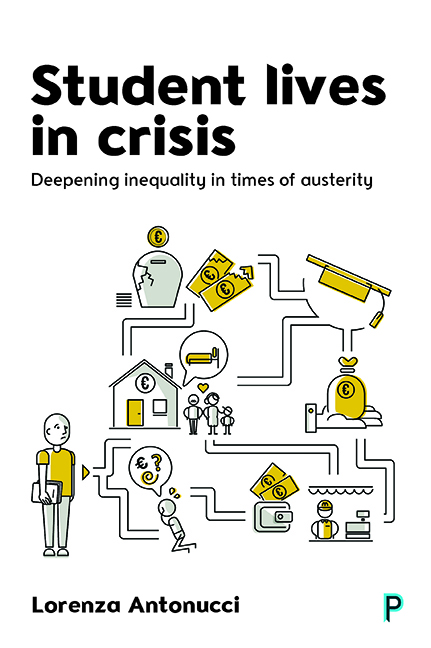Book contents
- Frontmatter
- Dedication
- Contents
- List of tables and figures
- List of acronyms
- Note on author
- Preface: A post-Brexit preface
- Acknowledgements
- Introduction: Young people’s lives at university in crisis
- Part 1 University for all? How higher education shapes inequality among young people
- Part 2 Exploring the inequality of university lives in England, Italy and Sweden
- Part 3 The ‘eternal transition’: young adults and semi-dependence in university
- Conclusion: Addressing growing inequality among young people in university
- Notes
- Annex
- Index
Part 1 - University for all? How higher education shapes inequality among young people
Published online by Cambridge University Press: 05 April 2022
- Frontmatter
- Dedication
- Contents
- List of tables and figures
- List of acronyms
- Note on author
- Preface: A post-Brexit preface
- Acknowledgements
- Introduction: Young people’s lives at university in crisis
- Part 1 University for all? How higher education shapes inequality among young people
- Part 2 Exploring the inequality of university lives in England, Italy and Sweden
- Part 3 The ‘eternal transition’: young adults and semi-dependence in university
- Conclusion: Addressing growing inequality among young people in university
- Notes
- Annex
- Index
Summary
If entering university has the magic power of decreasing inequality, why is this generation of young people, who are the most educated cohort, being affected by a rising level of inequality?
To answer this question we need to go beyond the issue of mere access to HE and look at what happens to young people once they are in university. In particular, we need to focus on the material reproduction of inequality among young people from different backgrounds.
If we analyse what happens to young people once they are in university, we can see the increasing popularity of HE as part of a broader change in young people's transitions, which makes them experience a protracted phase of semi-dependence. In a way, this phase is a ‘suspension’ of the transition to adulthood, as it makes young people rely on family sources, even if they try to be independent through the use of state support or by working. The way young people are able to combine and negotiate their special status of ‘semidependence’ changes across classes and societies. In addition to looking at class, this part of the book considers how the three most different systems of welfare we find in England, Italy and Sweden shape young people's destinies in university.
The first chapter deals with the social consequences of mass access in Europe – namely, what expansion has meant for inequality and social justice. Has the universal expansion of HE really changed the elitist nature of such institutions? Welfare states have a profound function in shaping young people's experiences, which is analysed in depth in Chapter 2, where the welfare systems of England, Italy and Sweden are dissected in relation to their capacity to limit inequalities, or to reproduce them by asking parents to step in. Chapter 3 explores the potential sources of inequality among young people and the way inequality can be reinforced not only by means of differential welfare state interventions, but also via the reliance on family sources and the participation of young people in the labour market.
- Type
- Chapter
- Information
- Student Lives in CrisisDeepening Inequality in Times of Austerity, pp. 15 - 16Publisher: Bristol University PressPrint publication year: 2016



